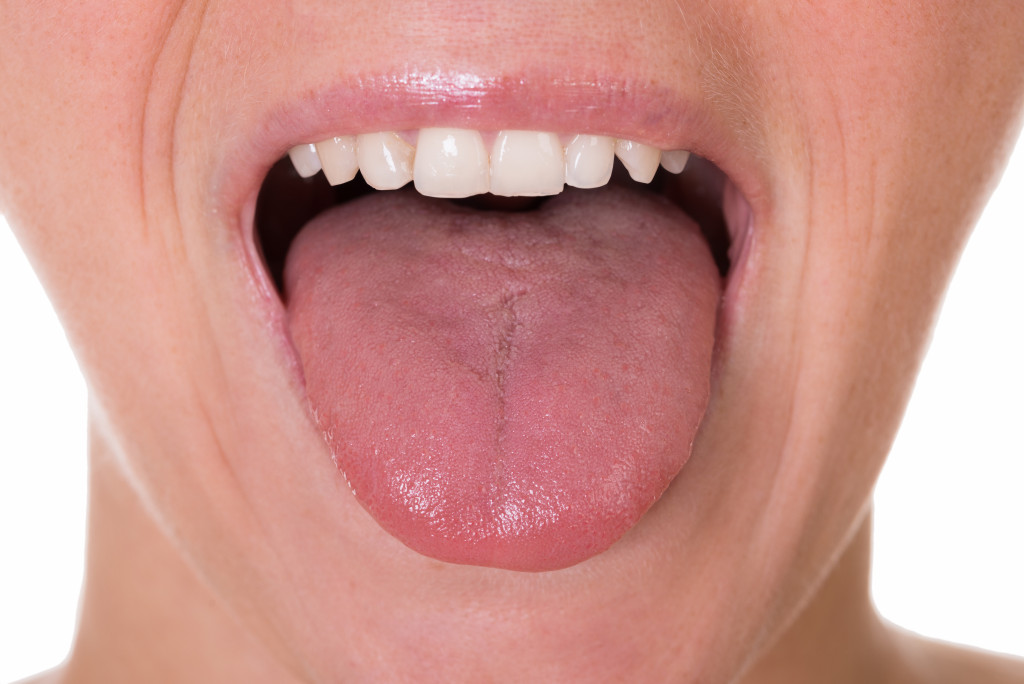Your tongue is a window into your health. It can tell you a lot about what’s going on inside your body and can be a valuable tool for diagnosing problems. The color of your tongue can give clues to the state of your overall health, and changes in its color could indicate something is wrong. Here are six things your tongue’s color can reveal about your health.
White Tongue
A white tongue can be a sign of a health problem. The most common cause of a white tongue is oral thrush, a yeast infection that can occur in people who have diabetes or who wear dentures. Other potential causes include:
- Dehydration
- Leukoplakia (a precancerous condition)
- Geographic tongue (a harmless condition that causes patches of the tongue to appear red and sore)
A white tongue can also be a side effect of certain medications, such as antifungal drugs, corticosteroids, and steps. In most cases, a white tongue is nothing to worry about and will go away on its own. However, if the white tongue is accompanied by other symptoms, such as pain, swelling, or redness, it could signify something more serious. If you are concerned about your tongue, it is best to see an experienced doctor for an evaluation. The doctor can examine your tongue and help identify the medical condition you are facing. He or she can also treat the disease so you can get your pink-colored tongue back.
Red Tongue
A bright red tongue can signify many things, from a simple deficiency to a more severe condition. In Chinese medicine, the tongue is used as a tool for diagnosis, and certain patterns on the tongue can indicate specific imbalances in the body.
For example, a red tongue with black spots may indicate liver dysfunction, while a dry and cracked tongue may point to dehydration. While the tongue is not always accurate, it can give you a general idea of what’s going on in your body and a starting point for further investigation. If you’re concerned about your red tongue, it’s best to consult with a healthcare professional to get to the bottom of it.
Black Tongue
A black tongue is a harmless condition that turns your tongue black. It’s usually caused by an overgrowth of bacteria in your mouth. It can happen when you take certain medications or have poor oral hygiene. Black tongue is not contagious and is generally not painful. However, it can cause bad breath. See your doctor or dentist if you’re concerned about your tongue’s appearance. They can rule out other causes of the black tongues, such as oral cancer.

Treatments for black tongue include improving your oral hygiene and quitting smoking. In most cases, the black tongue clears up within a few weeks.
Blue Tongue
Bluetongue is a group of viruses that can infect sheep, cattle, and other ruminants. The disease gets its name from the blue or purple discoloration of the tongue that can occur in some animals. Bluetongue is primarily spread by biting insects, such as midges or gnats. Infected animals often develop a high fever and may suffer from diarrhea, lethargy, and appetite loss. In severe cases, the virus can cause respiratory problems and even death.
While the blue tongue is not typically fatal in humans, it can cause severe flu-like symptoms. In some cases, the virus has also been linked to encephalitis (brain inflammation). As a result, it is essential to be aware of the risks posed by blue tongue and take steps to protect yourself against it.
Yellow Tongue
A yellow tongue can indicate poor oral hygiene or a more serious underlying medical condition. If your tongue is yellow and you have no other symptoms, it’s likely due to bacteria build-up from not brushing your teeth regularly. You can remove the bacteria by brushing your tongue with a soft toothbrush or using a tongue scraper.
If your tongue is yellow and you also have a fever, sore throat, or swollen lymph nodes, it’s likely due to a viral or bacterial infection. In this case, you should see a doctor for treatment. A yellow tongue can also signify jaundice, which is caused by excess bilirubin in the blood. Jaundice can be a symptom of liver disease, so if you have yellowing skin or eyes and a yellow tongue, you should see a doctor immediately.
While the tongue can provide some clues about your overall health, it’s important to remember that it’s not always accurate. If you’re concerned about your tongue, the best thing to do is consult with a healthcare professional. They can help you determine what, if any, underlying conditions may be causing the changes in your tongue.

